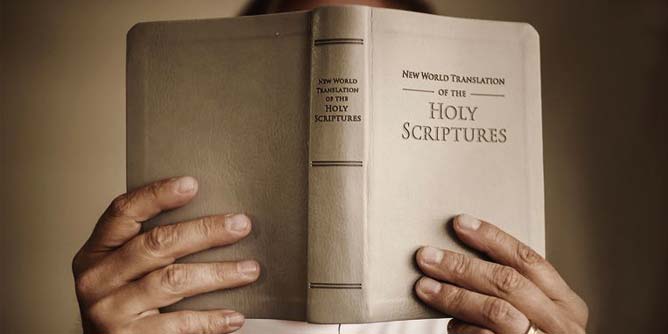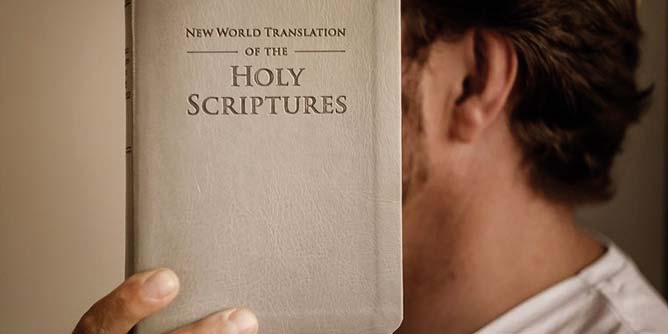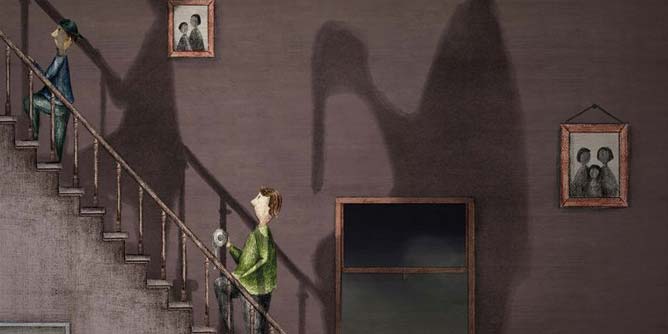More than 11 years revealing secrets because there is no excuse for secrecy in religion – w1997 June 1; Dan 2:47; Matt 10:26; Mark 4:22; Luke 12:2; Acts 4:19, 20.

The Netherlands is not the first country where the government delves into the abuse policy of Jehovah’s Witnesses.
We take a look across the border to see how other countries are tackling the problem with the religious community.
Article originally published in Dutch on Trouw by Marinde van der Breggen
In the Netherlands it was unique: an investigation into a religious group ordered by the government. Last week researchers from Utrecht University presented the results of their research into how Jehovah’s Witnesses deal with abuse. The entire House of Representatives asked for such an investigation after the community refused to facilitate it itself.
The summary proceedings brought by the Witnesses to prevent publication did not help. The results became public and confirmed what was already known: the religious community did not adequately deal with reports of abuse, which is often problematic for victims.
The Jehovah’s Witnesses have already indicated that they will not adopt the investigators’ recommendations, such as setting up a hotline. So we have to wait and see what happens next. Because of the freedom of religion, the minister does not have many options to force the group to cooperate.
The Netherlands is not the first country where the Witnesses are under the magnifying glass because of their abuse protocols. There are already several governments that have bitten themselves in the file: Belgium, England and Australia are examples of this. How did they approach that?

Photo: Eric de Mildt
Belgium
In Belgium, the Public Prosecution Service is investigating abuse among the Jehovah’s Witnesses. The federal public prosecutor’s office does not release anything as long as the investigation is ongoing, but according to Pascal Mertens, president of the Belgian branch of victim organization Reclaimed Voices, there is a special unit that deals with the subject. “I understand that they have bundled all complaints about abuse to Jehovah’s Witnesses so that they have a good overview.”
Last spring, the police searched the branch near Kraainem, the Belgian headquarters of the Witnesses. They were looking for internal judicial committee cases.
The thoroughness of justice in Belgium is due to the IACSSO, an independent government body that is affiliated with the Ministry of Justice and can provide solicited and unsolicited advice on matters that it considers important. When, after reporting by Trouw in 2017 about abuse by the Witnesses with Reclaimed Voices, a reporting point opened, the IACSSO asked whether reports had also arrived there from Belgium, says director Kerstine Vanderput. That turned out to be the case, after which IACSSO investigated the internal protocols of the Jehovah’s Witnesses. Based on that, it sent recommendations to parliament.
The IACSSO advised the parliament, among other things, to conduct a study “to gain insight into the underlying pattern of internal rules, customs and structures and their possible influence on willingness to make a declaration”. A special parliamentary committee was set up in March 2019 to hold hearings of experts behind closed doors. “Unfortunately, we soon ran out of government,” says Vanderput. “I recently informed them about the situation and I am still waiting for an answer.”
Reclaimed Voices Belgium has thus completed its task, says Mertens. “Our aim was to bring the problem of abuse to the attention of politicians and the judiciary. We have achieved that.” The foundation will therefore soon continue under a different name and will now stand up for victims of the shunning system used by the Witnesses.
England
In England, the Charity Commission, an independent governmental organization overseeing charities, launched an investigation into the Jehovah’s Witnesses in Manchester in 2014. Two years earlier one of their members had been convicted of sexual abuse and the committee wanted to know how the organization had dealt with it. They came to the conclusion that everything had gone wrong. “The victims have been hopelessly abandoned,” said research leader Harvey Grenville. According to him, Jehovah’s Witnesses did not prioritize the welfare of the victims and their approach was seriously inadequate. The fact that the society did not want to cooperate, underlined that.
But there is also a bright spot: following the involvement of the Charity Commission, the British Witnesses have changed their policy on a number of points. For example, victims no longer have to make their accusations in front of the (alleged) perpetrator and a conviction by the secular authorities must also be a reason to impose restrictions on the perpetrator, even though there are too few witnesses to start an internal committee.
At the same time as the investigation in Manchester, a broad investigation into the organization as a whole in England and Wales has started. That is currently ongoing. A spokesperson informed Trouw via e-mail that it is therefore not possible to make any statements about the progress, so as not to influence the investigation.
Australia
In 2013, the Australian government launched an investigation into the approach to sexual abuse by a variety of organizations, from scouting groups to religious institutions – including Jehovah’s Witnesses. The Royal Commission into Institutional Responses to Child Sexual Abuse, as the committee was called in full, delivered its report in December 2017.
Religious organizations were the worst off in terms of child safety. According to the research, they were not transparent and took too little responsibility. They also tended to place the reputation of the institution above the safety of the children entrusted to their care.
Jehovah’s Witnesses were also criticized by the Royal Commission for their abuse policy. In particular, the two-witness rule (which requires that abuse can only be established if there are two witnesses, which is practically never the case) and failure to report to the authorities is problematic according to the investigation. During the hearings it became apparent that since the 1950s the religious society has received more than a thousand reports of child abuse that were never passed on to the judiciary.
The committee made more than four hundred recommendations for the government and various other types of institutions. The specific recommendations to the Witnesses largely correspond to those from last week’s Utrecht University report: abandon the two-witness rule in cases of abuse, include women in the hierarchy and ensure that victims of abuse are not double punished by exclusion from the community.

Image: Kwennie Cheng
The Jehovah’s Witnesses are one of eleven institutions that have been asked to report annually on the progress of the implementation of the recommendations. They have done this twice so far: they say they meet all points.
It was already clear during the hearing that the protocol for dealing with abuse was amended as a result of the investigation. These changes were later introduced worldwide; in the Netherlands, they apply from 2018. Spokesperson Michel van Hilten said in the Dagblad van het Noorden that it is about clarifying existing policies. But there are certainly new things in it, as Trouw said at the time. Among other things, that elders must report if a minor is still in danger or if there are other “legitimate reasons”. The Australian government has adopted almost all of the committee’s recommendations. It has set up a national compensation fund and expects all the institutions investigated to register, so that victims can report there. They have time to do so next summer, but last spring the government already put the pressure on by publishing a list of institutions that had not yet joined.
In addition, almost all Australian states have now made the failure to report the sexual abuse of a minor a criminal offense. In some states this even applies to priests who hear confessions of abuse during confession. According to the committee, this obligation does not bite with the right to free religious practice. “That right is not absolute”, the committee wrote in its recommendations. “The law can restrict freedom of religion if necessary to protect public safety, order, health or morals or the fundamental freedoms of other people.”

Lester Somrah writes about the beliefs and practices of Jehovah’s Witnesses on his social media platforms and was baptized as a member in 1998.